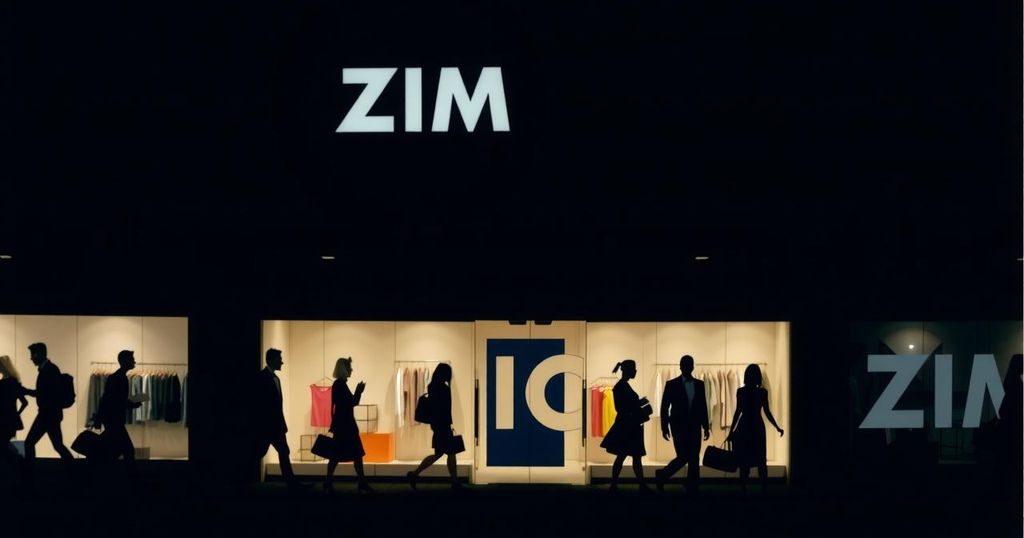Zimbabwe’s Retail Sector Crumbles Under Weight of ZiG Currency Challenges

Retailers in Zimbabwe warn that the official exchange rate of the newly introduced Zimbabwe Gold (ZiG) is unsustainable and is leading to financial distress for formal shops. The currency has devalued by 80% in the black market, causing price instability and forcing businesses to choose between significant losses or price hikes. Major retailers are urging the government to allow market-determined exchange rates to prevent further economic destabilization.
HARARE – Retailers in Zimbabwe have expressed grave concerns regarding the adverse impact of the official exchange rate for the newly introduced Zimbabwe Gold (ZiG) currency on their businesses. Launched in April 2024 as a solution to persistent inflation, the value of ZiG has plummeted by 80% on the black market, leading to severe price instability and the establishment of a dual pricing system within the economy. Major retailers, including TM Pick n Pay, OK, and Edgars, voiced their apprehensions to the Reserve Bank of Zimbabwe (RBZ), emphasizing that the current official exchange rate of US$1 to ZiG13.9, which positions the local currency higher than the South African rand, is utterly impractical. The Retailers Association of Zimbabwe (RAZ) represented these retailers in their communication with the RBZ, asserting that although ZiG was envisaged to stabilize the economy, it has inadvertently intensified price fluctuations, further complicating operational challenges for businesses. Suppliers, struggling with limited access to foreign currency, resort to utilizing black market rates for pricing goods and materials, where the exchange currently stands at ZiG26 to the US dollar, diverging sharply from the official rate. “Suppliers are facing a severe foreign currency shortage and excessive volatility in ZiG exchange rates on the black market, which has now become the basis of their pricing framework,” retailers articulated in their submission to the RBZ. Despite the illegality of black market trading, it remains the predominant source of foreign currency for numerous enterprises. Consequently, retailers grapple with the dilemma of either raising prices to balance the financial disparity or incurring losses up to 50% on each sale if they conform to the official exchange rate. In numerous instances, suppliers maintain distinct pricing systems—one for the local currency and another for foreign currency—with the latter reflecting the significantly elevated black market rates. In an effort to navigate these challenges, some retailers have resorted to disabling their point-of-sale machines to circumvent transactions in ZiG, while others witness a shift in consumer behavior, with many customers opting for informal shops that refuse to accept the new currency. Absent sufficient governmental support, the formal retail sector cautions against the potential for widespread closures. For instance, a well-known product such as Boom washing powder is currently priced at an inflation-adjusted rate of ZiG102.45 by wholesalers, starkly contrasted with the official price of ZiG47.46. Retailers are thus confronted with the unmanageable decision to either sell at a loss or increase prices in USD, which alienates their customer base. Local trader Mike Ncube shared these sentiments, likening the current predicament to Zimbabwe’s previous monetary failures, stating, “All the currencies introduced in Zimbabwe with the slashing of zeros and renaming of money have led to one thing—spiraling inflation.” Furthermore, he remarked, “The government is backing their money with arrogance, not reality.” RAZ has consistently urged the government to allow for market-driven determination of exchange rates, a plea echoing since the introduction of the bond note in 2016, another currency that faltered against the USD. As formal retailers continue to confront the complications stemming from the ZiG currency, there exists a persistent fear that without immediate reforms to the exchange rate system, the economic landscape of Zimbabwe may encounter further destabilization.
In Zimbabwe, the introduction of the new currency, Zimbabwe Gold (ZiG), was intended to mitigate the ongoing inflation crisis. However, the subsequent devaluation of ZiG, particularly on the black market, has resulted in significant economic complications for retail businesses. With the official exchange rate diverging sharply from black market rates, retailers are forced to navigate a complicated pricing landscape that threatens their profitability and sustainability. The Retailers Association of Zimbabwe has played a crucial role in voicing the concerns of the retail sector to the government, urging them to reevaluate the effectiveness of the current currency strategy in alleviating economic pressure.
In summary, the introduction of the Zimbabwe Gold (ZiG) has led to significant economic challenges for retailers in Zimbabwe, as the official exchange rate is increasingly disconnected from the black market realities. This discrepancy fosters a volatile pricing environment, compelling retailers to make difficult decisions that jeopardize their viability. Without urgent reforms to the exchange rate framework, the potential for further destabilization of Zimbabwe’s economy looms large, threatening the future of formal retail operations within the country.
Original Source: www.thezimbabwemail.com






